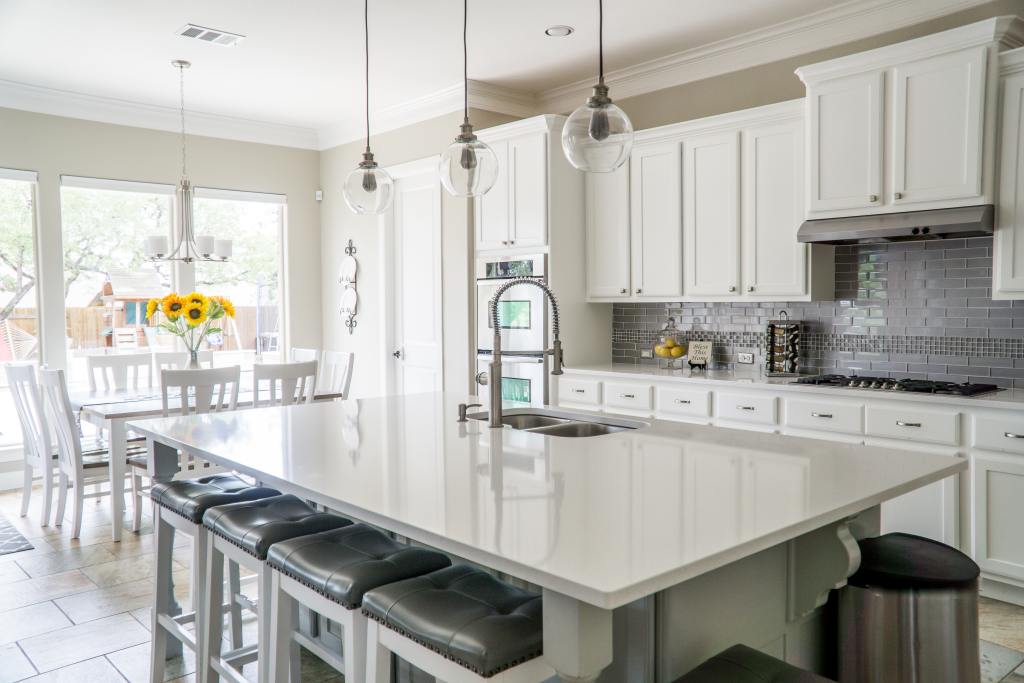According to statistics, people spend 62% of their waking life at home. With this in mind, keeping your home safe should always be a priority. It’ll be challenging for you and your family to recharge and stay comfortable at home when hazards exist.
The first step in keeping your home safe is being aware of the hazards present. When the household knows these hazards, they’ll have reasons to stay more vigilant and easily identify which precautions to implement to remain safe.

Here are four household hazards you might not know and tips on how to avoid them.
1. Talcum Powder Poisoning
Do you know that some products often used at home contain harmful ingredients? Talcum powder, commonly marketed as baby powder, can cause lung problems and even death. In its natural form, talc contains asbestos, a substance known to cause lung cancer when inhaled.
Aside from breathing problems, exposure to talcum powder can also cause cough (caused by throat irritation), eye irritation, throat irritation, and even low blood pressure. Talcum powder also affects the skin and causes blisters.
To reduce your risk of talcum powder exposure, you can:
- Use safer alternatives, such as cornstarch-based powders and arrowroot powders. Be sure to use talcum-free baby powder.
- Check the labels of the products used at home, as talcum powder has been used in foundations, concealers, soaps, deodorants, condoms, and many others.
- Avoid using paint, roofing materials, and insecticides that contain talcum powder.
2. Fires
A report from the National Fire Protection Association shows that there were more than 377 residential properties burned down from 2015 to 2019. The report also indicates that house fires cost Americans about $7.7 billion during that period.
Fires at home aren’t only expensive; they can also hurt or even cause death to home residents. Being in this situation also impacts your mental health. It’s common for people who survive a house fire to experience anger, shock, depression, and hopelessness.
You can reduce the risk of fire at home by:
- Reducing flammable clutter in and outside your home, including excess sawdust, paper, and old boxes.
- Checking products recalled because of a fire hazard. Some of these products include bird baths, air fryers, sleepwear, freezers, and e-bikes.
- Regularly assessing electrical systems and call a professional once you notice loose or frayed wires. Never attempt to repair these electrical issues on your own.
3. Falls
Injuries due to falls are common hazards at home. More than one out of four adults fall at home each year, but only less than half see a doctor afterward. Falls are serious and expensive because they can often cause head injuries and broken bones.
Seniors are at a higher risk of being hurt from falling at home. Every year, three million older people are treated in emergency rooms due to fall injuries. At least 300,000 seniors are also hospitalized for hip fractures caused by falls.
Here’s how you can protect yourself and your family from falling by:
- Get a medical alert system, especially if you have seniors living with you. You can visit Bay Medical Alarm Review if you want to know the various features of their modern medical alert systems.
- Stabilize staircases by installing solid handrails, adequate lighting, and safety gates if you have children at home.
- Cover slippery surfaces in the bathroom with rugs.
4. Carbon Monoxide Poisoning
Another potential danger present in your home is carbon monoxide. Even low exposure to carbon monoxide can trigger symptoms such as severe dizziness and headaches. Exposure to high levels of carbon monoxide can lead to impaired vision, vomiting, and sudden death.
Unlike other hazards, the presence of carbon monoxide is challenging to detect because it’s an odorless gas. Usually, you can only identify carbon monoxide in your home when you or one of your family members already exhibit symptoms.
Instead of relying on your senses to detect carbon monoxide at home, consider the following:
- Install a carbon monoxide detector that alerts you if the CO in your home reaches dangerous levels.
- Hire professionals to check your home’s HVAC system and other appliances that use coal, gas, or oil at least once a year. Homes with fuel-burning appliances are more likely to have CO problems.
- Don’t use a charcoal grill, generator, camp stove, or other charcoal or gasoline-burning device inside your home, in the basement, or near your windows.
Start Now
Keeping your home safe from hazards can be overwhelming, especially if you have kids and seniors at home. More often than not, you’ll be clueless about how or where to start.
To make things easier for you, start by using this article as your guide. Following all of the tips mentioned here will go a long way in keeping your home and family safe.

Leave A Comment